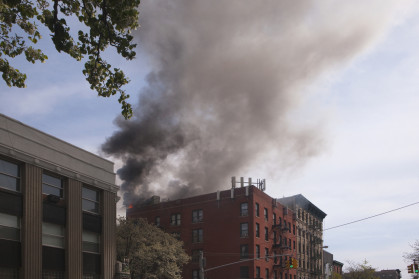
What should we consider when renewing insurance for our building?
In co-ops and condos with a property manager, the property manager usually secures insurance coverage for the building. A few property management firms have their own in-house insurance agency enabling them to collect the full insurance commissions. Other property managers work with one insurance brokerage that has an agreement in place to split the brokerage commission with the property manager.
Your board has a fiduciary responsibility to the neighbors you represent. So even if your building has a property manager, your board can solicit insurance bids from an independent insurance broker.
Here are two factors to consider when choosing insurance:
How much insurance does your co-op or condo need?
The amount your building should be insured for is determined by your building's replacement cost. It is important to keep in mind that the building's replacement cost may be different from the market value of the property, so a proper assessment and estimate needs to be done to make sure that your building is properly insured. Your replacement cost should be reassessed periodically, at least every few years or after major updates or renovations are done, to ensure that the coverage remains adequate.
How high of a deductible should your insurance policy have?
A deductible is the amount that the building is responsible for paying in the event of a claim before the insurance coverage kicks in. The amount of deductible that your building should have for its insurance policies depends on several factors, including the type of insurance, the level of risk, and the budget of your building.
The higher the deductible, the more your building pays out of pocket for claims, but the lower the premium. For property insurance, a typical deductible may be $5,000 to $50,000, depending on the size and value of the building. For most of the other types of policies, the standard range is typically $1,000 to $50,000.
When deciding on the amount of the deductible, your board needs to balance the cost savings from a higher deductible with the ability to pay out-of-pocket in case of a claim. It is important to consult with an insurance professional to help you to determine the right amount of deductible for your co-op or condo’s insurance policies.
Your co-op or condo board should work with its insurance professional to determine how much risk they are willing to take on when balancing the limits and deductibles versus the insurance premiums.
Factors such as the condition of your building, the age of the plumbing and electrical systems, and the presence of hazards such as lead or asbestos, can all impact the level of risk and the corresponding insurance premium. For example, if your building has already undergone a significant amount of upgrades, such as the removal of lead or asbestos, the risk of damage or injury related to those hazards is reduced, and the co-op or condo board can consider a higher deductible as an option to further reduce the premium.
Deductibles will vary by insurance carrier and policy, so it is important to work with an insurance professional who can help evaluate the level of risk and determine the appropriate deductible for each policy.
Sign Up for our Boards & Buildings Newsletter (Coming Soon!)
Thank you for your interest in our newsletter. You have been successfully added to our mailing list and will receive it when it becomes available.























